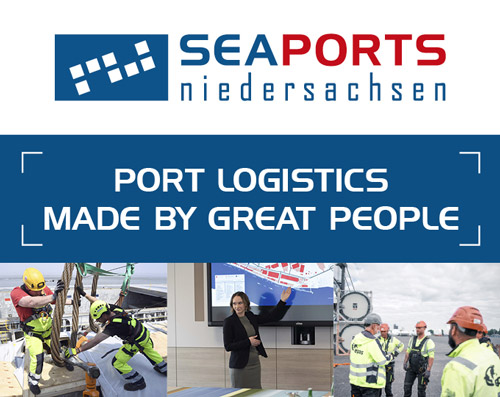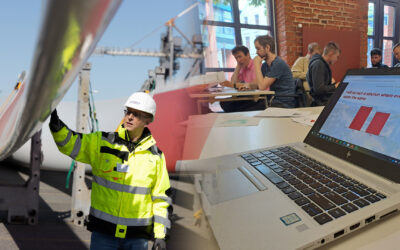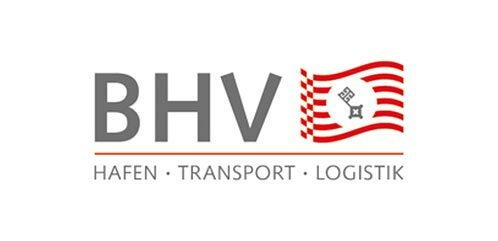It is not just the rules and channels of public communication that are changing at breakneck speed, but also the demands placed on companies. Janina Kovacs from the Mittelstand Digital Centre Bremen-Oldenburg and Reinhard Pfeiffer, owner of the Bremen PR agency 3F Kommunikation, provide guidance through the “jungle of the best possible public image”.

“Editors don’t want to receive ‘adverts’.”
Janina Kovacs is head of press relations and marketing at the Mittelstand Digital Centre Bremen-Oldenburg and is responsible for all communication issues.
Kovacs:
Good press relations consist of many things, starting with the classic tools of the trade, such as the formalities I need to observe when writing a press release, through to continuous planning using an editorial plan, distribution via e-mail or press portals and follow-up. My advice to companies is to stay authentic. In other words, feel free to report on your milestones, but don’t overdo it. It doesn’t inspire much confidence and may even be counterproductive. Editors don’t want to receive “adverts” that they first have to rewrite – they don’t have time for that. It’s better to keep your publications short, informative, understandable and relevant. Also build up a network of direct media contacts.Pfeiffer: Good press relations are understood for what they are – a strategic component of corporate communication. This doesn’t involve writing press releases about a company’s anniversary, which is often associated with exaggerated expectations of public perception. It’s the result of a concept that integrates location, economic and socio-political issues and makes clear what a company stands for.Good press relations work also consists of a continuous, committed dialogue with all the reference groups that are relevant to the company and its market. In this context, it does not only address existing and prospective customers, rather also investors, business partners, political bodies and decision-makers. Particularly in the case of publicity-sensitive topics such as the establishment of new logistics centres, good press work can pave the way for success. Companies need to remember their employees – before news leaves the company, it should already have been communicated internally.
LOGISTICS PILOT: Has digitalisation changed communication and press relations? What is social media’s role in this?
Kovacs: In our globalised and techno-logically connected world, social media has become a powerful communication tool that enables most companies to reach target groups directly and send them messages quickly. However, success requires expertise and a willingness to keep learning as technologies evolve rapidly. While yesterday we were still learning which social media platform is right for our own company, today we’re asking ourselves how we can use social media to reach specialists and young professionals from Generation Z. Tomorrow, PR managers will also have the task of understanding ChatGPT and using it efficiently. That is a lot in day-to-day business, of course. Fortunately, there are support services such as the Mittelstand Digital Centres, which provide companies with information free of charge.
Pfeiffer: Social media is an indispensable component of successful press and public relations work. Using platforms such as LinkedIn, relevant, professionally created content can achieve a level of reach that print media can only dream of. This not only makes communication faster and more direct, but also more responsible because the reactions to every post are immediate. For me, expressive contributions from CEOs, ones that touch a nerve, are some of the best tools in the communication mix. They convey attitude and personality and make an important contribution to positioning top management.
Kovacs:
Artificial intelligence is a megatrend that creates incredible opportunities for all of us but also raises many questions. Can it replace human interaction in the long term? The answer probably varies depending on the person and the area of expertise. For me, personal contact, empathy and emotional intelligence remain the basis of communication and human interaction.Pfeiffer: The question should rather be “How human can AI become?” AI still produces a lot of what are known as “hallucinations” – content that seems convincingly formulated but lacks any verifiable basis. Anyone who conducts a dialogue based on AI-generated fake news loses the greatest asset of our time – credibility. It’s more like the success story of the smartphone in that AI isn’t replacing interpersonal interaction, rather it’s opening up new ways of communicating that are fantastic. (bre)
“AI can’t assume responsibility for its mistakes nor instill trust.”
Reinhard Pfeiffer With his agency 3F Kommunikation, the journalist has been providing content for companies’ press and public relations work for over 20 years.










